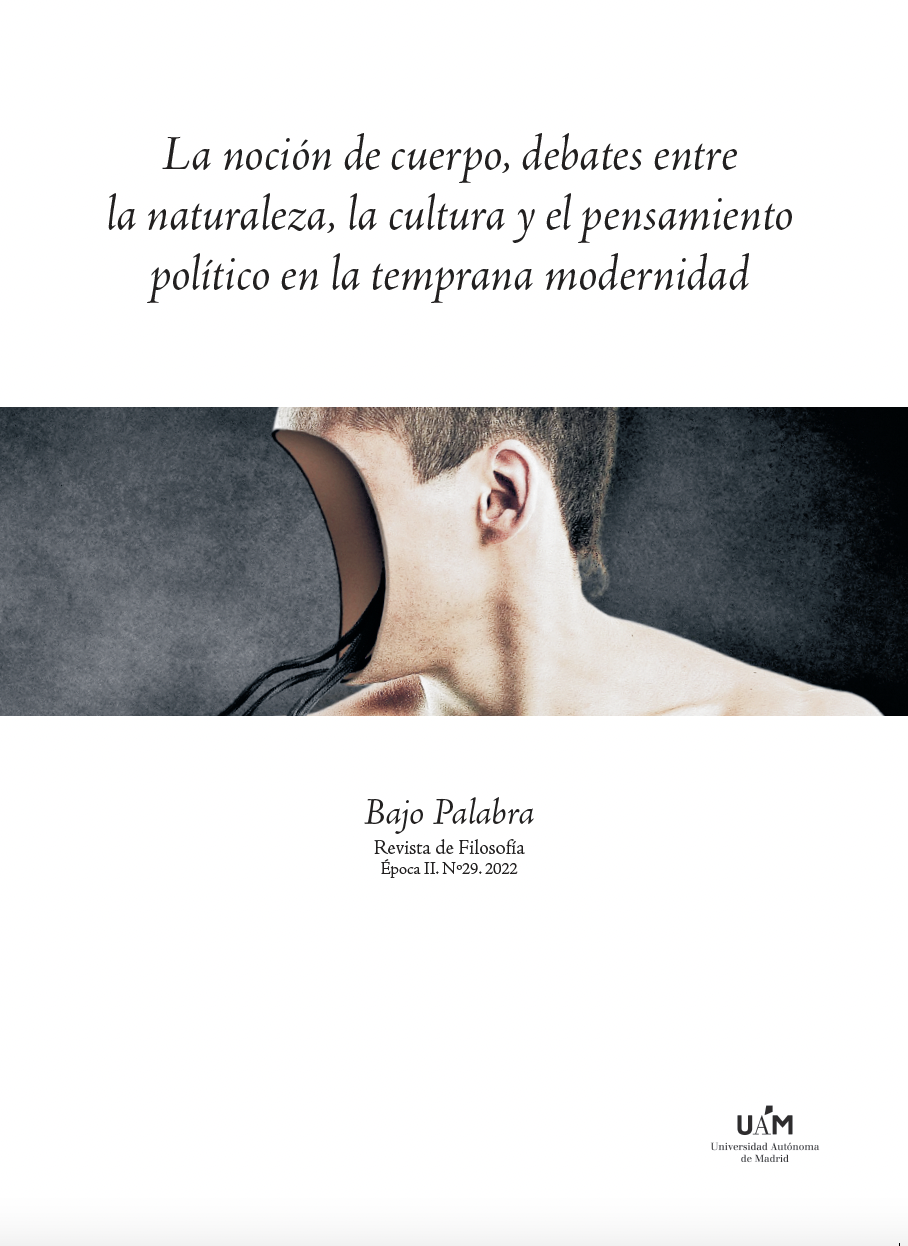The Monistic Understanding of Body-Mind And Its Impact On The Understanding Of Culture in Herder
Keywords:
monism, dualism, culture, body, HerderCopyright (c) 2022 Andrés Inurreta Acero

This work is licensed under a Creative Commons Attribution 4.0 International License.
Abstract
In this article I want to present the
consequences of Johann G. Herder’s monism
theory on the concept of culture, to
show that culture cannot be understood
exclusively as mental or symbolic contents
independent of body and matter.
We will first present Herder’s criticism of
dualism, mainly of a rationalist nature;
subsequently we will describe the monistic
theory elaborated by the German
thinker; then we will give the general
keys to Herder’s conception of culture,
to conclude with the consequences of
monism on the spiritual interpretation
of culture, focusing on the place of the
body as a cultural production.
Downloads
References
Blake, W. (2005). El matrimonio entre el cielo y el infierno. Antología bilingüe.
Alianza Editorial, 2005, p. 133.
Caracciolo Trejo, E. (2005). Notas aclaratorias. Blake, W. Antología bilingüe.
Alianza Editorial, p. 259.
Descartes, R. (2008). Meditaciones acerca de la Filosofía Primera. Seguidas de las
objeciones y respuestas. Universidad Nacional de Colombia.
Echeverría, B. (2001). Definición de la cultura. Editorial Ítaca.
Forster, M. N. (2012). Introduction. Herder: Philosophical writings (pp.
VII-XXXV). Cambridge University Press. DOI: https://doi.org/10.1017/
CBO9781139164634
Forster, M. (2018). Philosophy of Mind. Herder’s Philosophy (pp.177-191).
Oxford University Press.
Forster, M. (2018). Herder’s Philosophy. Nueva York, Oxford University Press.
Herder, J. G. (1940). God, some conversations. Nueva York, Ve
Herder, J. G. (1959). Ideas para una filosofía de la historia de la humanidad.
Losada.
Herder, J. G. (2012a). On cognition and sensation, the two main forces of the
human soul (1775) [preface]. Herder: Philosophical Writings (pp. 178-186). Cambridge
University Press. doi: https://doi.org/10.1017/CBO9781139164634.
Herder, J. G. (2012b). On the cognition and sensation of the human soul
(1778). Herder: Philosophical Writings (pp. 187-246). Cambridge University
Press. DOI: https://doi.org/10.1017/CBO9781139164634.
Heinz, M. (1999). Teorías de la cultura de la ilustración: Herder y Kant. Ideas y
Valores, 109, pp. 119-134.
Kosellek, R. (2006). Sobre la estructura antropológica y semántica de Bildung.
Historia de conceptos. Estudios sobre semántica y pragmática del lenguaje político y
social (pp. 49-94). Trotta.
Martínez-Freire, P. F. (2010). La naturaleza representacional de la mente según
Leibniz. Leibniz en la filosofía y la ciencia modernas (pp. 247-264). Comares.
Solé, M. J. (2011). Spinoza en Alemania (1670-1789). Historia de la santificación
de un filósofo maldito. Editorial Brujas.
